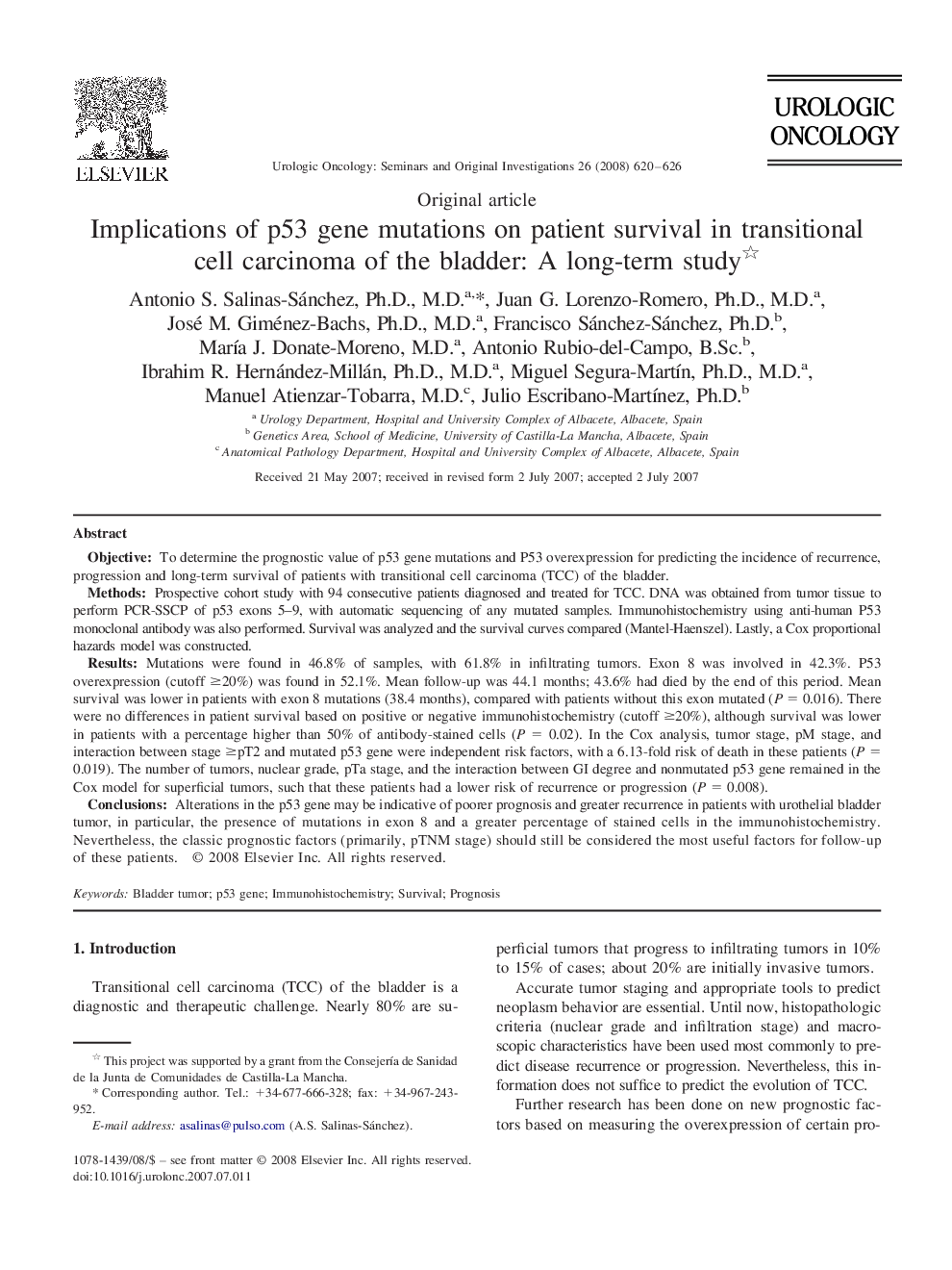| کد مقاله | کد نشریه | سال انتشار | مقاله انگلیسی | نسخه تمام متن |
|---|---|---|---|---|
| 4001111 | 1259397 | 2008 | 7 صفحه PDF | دانلود رایگان |

ObjectiveTo determine the prognostic value of p53 gene mutations and P53 overexpression for predicting the incidence of recurrence, progression and long-term survival of patients with transitional cell carcinoma (TCC) of the bladder.MethodsProspective cohort study with 94 consecutive patients diagnosed and treated for TCC. DNA was obtained from tumor tissue to perform PCR-SSCP of p53 exons 5–9, with automatic sequencing of any mutated samples. Immunohistochemistry using anti-human P53 monoclonal antibody was also performed. Survival was analyzed and the survival curves compared (Mantel-Haenszel). Lastly, a Cox proportional hazards model was constructed.ResultsMutations were found in 46.8% of samples, with 61.8% in infiltrating tumors. Exon 8 was involved in 42.3%. P53 overexpression (cutoff ≥20%) was found in 52.1%. Mean follow-up was 44.1 months; 43.6% had died by the end of this period. Mean survival was lower in patients with exon 8 mutations (38.4 months), compared with patients without this exon mutated (P = 0.016). There were no differences in patient survival based on positive or negative immunohistochemistry (cutoff ≥20%), although survival was lower in patients with a percentage higher than 50% of antibody-stained cells (P = 0.02). In the Cox analysis, tumor stage, pM stage, and interaction between stage ≥pT2 and mutated p53 gene were independent risk factors, with a 6.13-fold risk of death in these patients (P = 0.019). The number of tumors, nuclear grade, pTa stage, and the interaction between GI degree and nonmutated p53 gene remained in the Cox model for superficial tumors, such that these patients had a lower risk of recurrence or progression (P = 0.008).ConclusionsAlterations in the p53 gene may be indicative of poorer prognosis and greater recurrence in patients with urothelial bladder tumor, in particular, the presence of mutations in exon 8 and a greater percentage of stained cells in the immunohistochemistry. Nevertheless, the classic prognostic factors (primarily, pTNM stage) should still be considered the most useful factors for follow-up of these patients.
Journal: Urologic Oncology: Seminars and Original Investigations - Volume 26, Issue 6, November–December 2008, Pages 620–626